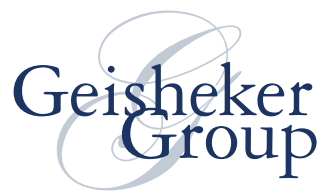As businesses navigate an increasingly complex digital landscape, many are turning to fractional Chief Marketing Officers to drive growth and innovation. Here’s what you need to know about this emerging C-suite trend.
In today’s fast-paced business environment, companies of all sizes are constantly seeking ways to stay competitive and drive growth. One emerging trend that’s gaining traction across industries is the adoption of fractional Chief Marketing Officers (CMOs). This flexible approach to marketing leadership is reshaping how businesses think about their C-suite and marketing strategies. But is a fractional CMO right for your company? Let’s dive into the details of this innovative solution and explore its potential benefits and applications.
What is a Fractional CMO?
A fractional CMO is a seasoned marketing executive who works part-time or on a contract basis for multiple companies simultaneously. These professionals bring high-level strategic expertise and leadership to organizations that may not have the resources or need for a full-time CMO.
Fractional CMOs typically work with companies for a set number of hours per week or month, allowing businesses to access top-tier marketing talent at a fraction of the cost of a full-time executive.
The Benefits of Hiring a Fractional CMO
1. Cost-Effectiveness
One of the most significant advantages of hiring a fractional CMO is the potential for substantial cost savings. Full-time CMOs command high salaries, often ranging from $200,000 to $500,000 or more annually, depending on the company size and industry. In contrast, fractional CMOs typically charge hourly or monthly rates that can result in savings of 50-70% compared to a full-time executive.
2. Flexibility and Scalability
Fractional CMOs offer unparalleled flexibility, allowing companies to scale their marketing leadership up or down based on current needs and budget constraints. This agility is particularly valuable for businesses experiencing rapid growth or facing market uncertainties.
3. Diverse Experience and Fresh Perspectives
Fractional CMOs often bring a wealth of experience from working across various industries and companies. This diverse background can introduce fresh perspectives and innovative strategies that might not be available from a single-company career path.
4. Objectivity and Focus
As external consultants, fractional CMOs can offer an unbiased view of a company’s marketing challenges and opportunities. Free from internal politics and historical baggage, they can focus solely on driving results and implementing effective strategies.
5. Access to a Broader Network
Experienced fractional CMOs often come with extensive professional networks, providing access to top-tier talent, vendors, and potential partners. This expanded reach can be particularly beneficial for companies looking to break into new markets or scale rapidly.
6. Mentorship and Team Development
Many fractional CMOs excel at mentoring in-house marketing teams, helping to develop internal talent and build stronger marketing capabilities within the organization. This knowledge transfer can have long-lasting benefits even after the fractional CMO’s engagement ends.
7. Rapid Implementation of Best Practices
With their broad experience and up-to-date knowledge of marketing trends, fractional CMOs can quickly implement industry best practices and cutting-edge strategies. This agility can give companies a competitive edge in fast-moving markets.
Industries Benefiting Most from Fractional CMOs
While fractional CMOs can add value across various sectors, certain industries stand to benefit more from this flexible arrangement:
1. Tech Startups and Scale-ups
The fast-paced nature of the tech industry, coupled with the need for rapid growth and limited resources, makes fractional CMOs an attractive option for many startups and scale-ups. These companies often require sophisticated marketing strategies but may not have the budget or long-term need for a full-time CMO.
2. E-commerce and Direct-to-Consumer Brands
The highly competitive and ever-evolving landscape of e-commerce requires agile marketing leadership. Fractional CMOs can help these brands navigate digital marketing challenges, optimize conversion rates, and develop omnichannel strategies without the overhead of a full-time executive.
3. Professional Services Firms
Law firms, consulting agencies, and other professional services companies often benefit from the strategic marketing insights of a fractional CMO. These businesses typically have complex sales cycles and need sophisticated thought leadership and content marketing strategies, areas where experienced fractional CMOs can excel.
4. Healthcare and MedTech
As the healthcare industry becomes increasingly consumer-focused, many organizations in this space are turning to fractional CMOs to help navigate the complex regulatory environment while developing effective patient engagement and digital health strategies.
5. Non-Profit Organizations
Non-profits, often operating with limited budgets, can leverage fractional CMOs to develop impactful marketing and fundraising campaigns without the long-term financial commitment of a full-time executive.
6. Manufacturing and Industrial Companies
Traditional manufacturing and industrial businesses undergoing digital transformation can benefit from fractional CMOs with experience in both B2B marketing and digital strategies. These executives can help bridge the gap between legacy operations and modern marketing practices.
Well-Known Companies Embracing the Fractional CMO Model
While many companies keep their C-suite arrangements private, several notable businesses have publicly discussed their shift from full-time to fractional CMOs:
- Airbnb: In its early growth stages, Airbnb utilized a fractional CMO to develop its initial marketing strategy and brand positioning. This approach allowed the company to access high-level marketing expertise while maintaining the flexibility needed in its rapid scaling phase.
- Dollar Shave Club: Before its acquisition by Unilever, Dollar Shave Club experimented with a fractional CMO model to drive its disruptive marketing campaigns. This flexible arrangement contributed to the brand’s viral success and rapid market penetration.
- Lyft: During a critical growth period, Lyft employed a fractional CMO to refine its brand strategy and differentiate itself in the competitive ride-sharing market. This strategic move helped the company establish a distinct identity and compete effectively against larger rivals.
- Warby Parker: The innovative eyewear company utilized a fractional CMO in its early stages to develop its unique direct-to-consumer marketing approach. This strategy was instrumental in disrupting the traditional eyewear industry and establishing Warby Parker as a leader in the space.
- Casper: The mattress-in-a-box pioneer leveraged a fractional CMO to develop its initial go-to-market strategy and build its brand. This approach allowed Casper to quickly establish itself in a crowded market with limited marketing resources.
Is a Fractional CMO Right for Your Company?
While the benefits of fractional CMOs are clear, this model may not be suitable for every organization. Here are some factors to consider when deciding if a fractional CMO is right for your company:
1. Company Size and Growth Stage
Fractional CMOs are often ideal for small to medium-sized businesses and startups that need expert marketing leadership but can’t justify the cost of a full-time CMO. However, as companies grow and marketing needs become more complex and time-intensive, transitioning to a full-time CMO may become necessary.
2. Marketing Team Structure
If your company has a strong in-house marketing team that primarily needs high-level strategy and guidance, a fractional CMO could be an excellent fit. However, if you require day-to-day marketing management and execution, a full-time leader might be more appropriate.
3. Budget Constraints
Companies with limited marketing budgets but a need for experienced leadership can benefit significantly from the cost-effectiveness of a fractional CMO.
4. Project-Based Needs
If your marketing needs are project-specific (e.g., a product launch, rebranding initiative, or market expansion), a fractional CMO can provide targeted expertise for the duration of the project without the long-term commitment.
5. Industry Complexity
Industries with rapidly changing landscapes or complex regulatory environments may benefit from the diverse experience and adaptability of fractional CMOs.
6. Cultural Fit
Consider whether your company culture and decision-making processes align well with an external, part-time executive. Some organizations may require a more embedded, full-time presence in the C-suite.
Conclusion
The rise of fractional CMOs represents a significant shift in how companies approach marketing leadership. This flexible model offers numerous benefits, including cost savings, access to diverse expertise, and the ability to scale marketing efforts in line with business growth. For many organizations, particularly those in high-growth industries or navigating digital transformation, a fractional CMO can provide the strategic guidance needed to drive success without the overhead of a full-time executive.
As the business landscape continues to evolve, the fractional CMO model is likely to gain further traction. Companies that can effectively leverage this flexible approach to marketing leadership may find themselves better positioned to adapt to market changes, drive innovation, and achieve sustainable growth.
Whether a fractional CMO is right for your company ultimately depends on your specific needs, growth stage, and long-term objectives. By carefully considering the factors outlined in this article, you can make an informed decision about whether this innovative C-suite solution aligns with your business goals and marketing strategy.
In an era where agility and expertise are paramount, the fractional CMO model offers a compelling option for companies looking to stay competitive in an increasingly complex and fast-paced market. As more businesses recognize the value of this flexible approach to marketing leadership, we may well see a continued shift towards fractional C-suite roles across various disciplines, reshaping the traditional corporate structure for the digital age.
Hire a Leading B2B SaaS Fractional CMO
If your company needs a B2B SaaS fractional CMO, consider working with Peter Geisheker. Peter has been providing Fractional CMO services for over 20 years and has expertise in growth tactics and conversion optimization. View Peter’s SaaS fractional CMO case studies.


